Enjoy a curated selection of offerings from around the web, we're bringing you underground culture at it's finest.
Gender Wars and Lazy Analysis
AP Article HereI want to discuss this AP Article, "Emboldened ‘manosphere’ accelerates threats and demeaning language toward women after US election". When Nick Fuentes tweeted his deranged misogynistic statements, the overwhelming majority of responses called him out, with some people even showing up at his house. This article doesn’t mention that. It feels like there's a narrative being built here, and I think it's worth talking about.
I’m not denying that reactionaries feel emboldened right now—they definitely do—but I think the reporting here paints a specifically gendered narrative. The article says: “As women become the majority on college campuses and many professional industries see increasing gender diversity, it has ‘led to young men scapegoating women and girls, falsely claiming it’s their fault they’re not getting into college anymore as opposed to looking inward,’ Brown said.” This phrasing is loaded. I would have said, "reactionary young men are scapegoating women and girls" or something similar to make a clear distinction.
Without that specification, it’s an unqualified statement that implies this behavior is widespread, perhaps even natural, among all young men. It erases the young men who want to see people like Fuentes get got. This type of rhetoric is subtle, but it feeds into the "inevitable backlash" narrative instead of framing this as a deliberate, ideological push by specific groups. It makes people shrug and say, "Well, that’s just how it is," instead of interrogating why reactionary figures are pushing this narrative and who benefits from it.
Why does someone like Fuentes have a platform at all? Who’s funding him, amplifying him, protecting him? Why are platforms so inconsistent in applying their own rules when it comes to figures like him? Who benefits from the normalization of these extremist viewpoints? These questions always circle back to class, capital, and systemic issues—which is why they're not discussed. Instead, we get gender war oversimplifications that neither stop the reactionaries nor make women safer.
By painting this misogyny as an inevitable male response, the solidarity of young men pushing back is erased. It undercuts the real story—that reactionaries are failing to win over as many as they want, despite the publicity and billionaire backing. Instead of focusing on resistance, the article inadvertently boosts the very reactionaries it condemns by overstating their cultural dominance.
The article states: “Online declarations for women to ‘Get back in the kitchen’ or to ‘Repeal the 19th,’ a reference to the constitutional amendment that gave women the right to vote, have spread rapidly. In the days surrounding the election, the extremism think tank found that the top 10 posts on X calling for repeal of the 19th Amendment received more than 4 million views collectively.”
These reactionaries aren’t emboldened because their views are winning—they’re desperate because the pendulum has swung so far away from them. They’re grasping at straws, trying to claw back relevance in a world where their views increasingly feel disgusting and unacceptable. That desperation is why they resort to shock value: tweeting, saying, and doing the most egregious things they can think of to stir the pot and draw attention. Attention doesn’t equal approval. You can’t measure influence by views, likes, or interactions, because those metrics don’t distinguish between support and condemnation and are easily botted. When Fuentes tweets something vile and gets a flood of replies, the overwhelming majority are people tearing him apart, not cheering him on. Multiple people literally showed up to his house—that’s how angry people are. Using engagement numbers as a sign of support is not just misleading—it’s lazy analysis. It plays into the very narrative these reactionaries want, which is to look bigger and more influential than they actually are.
By pushing this simplified gendered narrative, significant progress that previous feminists fought hard to achieve is being erased. Today, every guy who steps onto a college campus is required to take a class on consent—something that simply didn’t exist in the 2000s. Even if you don’t go to college, that cultural shift has trickled down through discussions with friends, people you've dated, infographics, YouTube, and social media. It’s everywhere. By defaulting to the notion that most men are inherently reactionary, or that being reactionary is a natural response for men in the face of women's progress, we’re undoing all of that progress. This isn’t to dismiss the very real fear women feel in response to the rise of these reactionary voices—it’s to show that framing this as a simplistic “young men versus young women” issue erases the hard work of the women who changed the culture in the first place.
Anti-Genocide Fighters Arrested Attempting to Stop Macy's Thanksgiving Parade
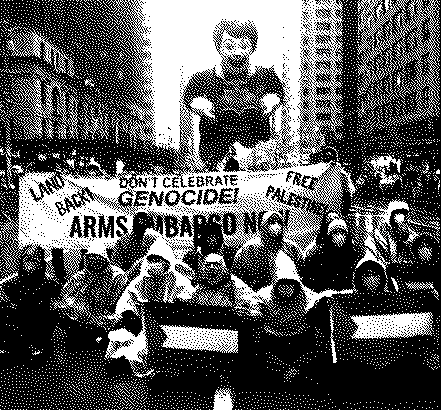
The Macy's Thanksgiving parade rolls on, selling smiles and consumer comfort. Meanwhile, the fighters below the balloons remind us there’s no liberation without struggle, no justice without risk. Just as that balloon floats above the arrests, the illusion of "peace" hovers above genocide, apartheid, and resistance buried beneath. Remember what’s in the shadow of the balloon. Remember Gaza. Remember that the systems that bind our values to profit, to genocide, to evil—they are as hollow as the parade balloons. They can be punctured.
The Democratic Party Has Lost The Mandate of The Working Class
 reuters
reutersThe Democratic Party has crossed a red line so boldly, so shamelessly, that it shatters any illusion of principle they once claimed to hold. Weeks ago, they promised us they’d push for a ceasefire in Gaza, that they’d end the genocide unfolding before the world’s eyes. “Thirty days, just after the election,” they said, “we’ll do everything we can to stop the bloodshed.” That day came and went.
Today, a $700 million weapons deal with Israel was revealed—nearly a billion dollars to arm a regime currently bombing hospitals, murdering children, and committing war crimes condemned by the United Nations. This isn’t just a betrayal; it’s a moral collapse. Gaza burns, and the Democrats send fuel for the fire.
By crossing this line, the Democrats have exposed themselves. Every promise they’ve made to the working class, every platitude about justice and equity, every slogan about progress was a lie. If they can fund genocide with such ease, what does that say about their stance on everything else? On poverty, homelessness, crime, and police brutality? The party has become a monument to mediocrity. It doesn’t offer hope, it doesn’t even offer much of a lie. What it gives you instead is a cold, clinical report of grim realities dressed up in progressive aesthetics. Inflation? “It’s no big deal,” they say, as they wave a chart in your face. Homelessness? The only solutions they entertain are punitive—criminalization, displacement, shuffling people from one encampment to another. Police brutality? “We’ve increased the police budget by 33%. Diversity training will fix it!” As if diversity training will stop a boot from landing on someone’s neck. What remains of this party is a hollow shell, propping up the same oppressive systems they claim to oppose, betraying not just the people of Gaza, but all of us.
This is a party that once gave us the New Deal, that aligned itself with labor, that claimed to speak for the working class. And yet, here we are, watching it devolve into a parade of celebrity culture and progressive aesthetics, all in service of maintaining capitalism’s regressive systems. Take the Kamala Harris campaign, for example. They spent $20 million—let me repeat that folks—$20 million dollars on celebrity endorsements. And of course, every single one of them was the talk of the town on Twitter. Everyone wanted to share their favorite moment of whatever pop star or actor jumped on board. But here’s the thing: if you have to pay for an endorsement, it’s not an endorsement. It’s an ad. A gig. It’s literally what these people do. It’s like putting Shaq in a damn Honda commercial. No one actually believes Shaq is out there rolling up to the drive-thru in a Civic. We all know it’s just a paycheck.
Now, let’s step back and compare that $20 million to what it’s actually like to survive as a working-class person in this country. You work 40 hours a week, every week, making $7.25 an hour—the federal minimum wage, which Democrats have failed to increase, by the way. What does that leave you with? $15,000 a year. Before taxes. That’s not enough to cover rent anywhere in this country, let alone feed a family, cover medical bills, or save for emergencies. And yet, while millions of people are struggling to make ends meet, this campaign is throwing away $20 million on celebrity PR stunts.
Let’s put those numbers in perspective. That $20 million could have paid a full year of wages for 1,334 working-class people. Or how about this: it’s the equivalent of giving 17,241 minimum-wage workers a month’s salary advance. Imagine what that could mean to someone living paycheck to paycheck, who’s one car repair or hospital visit away from financial ruin. Instead, what do we get? Katy Perry endorsing the Democratic Party. Let them eat cake? No, let them listen to washed up pop stars while they scrape by.
This isn’t just tone-deaf—it’s obscene. It’s a slap in the face to the very people the Democrats claim to represent. They aren’t addressing poverty, wage stagnation, or the fact that most Americans can’t afford a $400 emergency. They’re spending millions to sell an image. But you can’t eat an image. You can’t pay rent with a viral tweet. And you sure as hell can’t put food on the table with a celebrity’s lip service.
It’s impossible not to feel like the Democrats have been swallowed whole by corporate interests. They’ve traded the language of possibility for a language of inevitability. Poverty, war, brutality—these are all presented as fixtures of reality, unchangeable, unquestionable. Their role, apparently, is to manage the optics, not solve the problems. What used to be the party of the working class, the party of sweeping reforms and audacious vision, is now a celebrity clique, a psyop designed to maintain the same regressive systems of capitalism and imperialism while slapping a progressive coat of paint on it.
The truth is, working-class conservatives aren’t wrong to be outraged. They’re reacting to unbearable conditions, but they’re stuck in a web of misdirection, sold on boogeymen instead of solutions. They’re told to blame immigrants, blame women, blame the woke mob, because it’s easier than explaining that the system itself is rotten. The cognitive dissonance is palpable—people railing against “handouts” while relying on welfare, Social Security, or the Affordable Care Act to survive. They know something’s broken. They feel the alienation, the emptiness. Human needs—community, meaningful labor, a sense of purpose—are unmet. But the only outlet they’re offered is rage at caricatures painted by charlatans.
Matt Christman said it well: the collapse of hope for positive change has transformed politics into a theater of cruelty. It’s no longer about building something better; it’s about making sure your enemies suffer more than you do. Poverty, war, environmental collapse—they’re inevitable, so the question becomes, who gets the worst of it? My friends or my enemies? It’s a nihilistic spiral, and both parties thrive on it.
Liberals, meanwhile, peddle a different delusion. Their narrative insists that nothing is wrong, that things must continue as they are. Expressing anger, calling for radical change, rejecting the status quo—these are treated as the real problems. If you point out the insanity of the conditions we live under, you’re the barbarian, the unreasonable one. All the while, the capitalist class laughs, tightening its grip as both parties serve its interests. It’s a shared racket, the illusion of opposition masking their fundamental alignment.
And then there are the “progressive” Democrats, who exist to corral dissent and keep the illusion of debate alive. Sure, they’ll rattle the cage now and then, but when it matters—when there’s a war budget to approve or military aid to send—they fall in line every time. Bernie Sanders, AOC, the so-called left flank of the party—they talk big, but their actions tell another story. They’ll rail against the rich in one breath and vote for military aid to Israel in the next. They exist not to challenge the system but to maintain the illusion that the DNC is open to leftists. It’s a con. They’re the herding dogs of the Democratic Party, keeping a disillusioned working class from straying too far.
I saw this hypocrisy up close. I was at this party, working—not the kind of work these people do, “investments” or family business. No, I had baggies in my pocket, grinding out rent money one dime at a time. The kind of work that keeps your lights on but makes you invisible to the people sipping craft cocktails around you. The party was in this ridiculous upscale apartment, the kind where they’ve got sleek furniture but no real personality, just curated aesthetics. At one point, I overheard two young women talking about a guy.
“He inherited a million from his dad,” one of them said, “but he’s just sitting on it. He doesn’t even work on investments!”
That phrase—“work on investments”—stuck with me. The separation from labor in those three words was almost nauseating. Here I was, selling bud just to pay my rent, while they complained about a guy who wasn’t working on growing his million-dollar safety net. It hit me then: this is the bubble the Democratic Party operates in. These are the people shaping its policies and its culture. They don’t know what it’s like to scrape by. They don’t even know what labor is.
Let’s be honest: most people who vote third-party aren’t doing it because they think their candidate will win. They’re making a statement. Their second choice? Staying home. And honestly, can you blame them? Politics in this country is a playground for Ivy League elites who have zero interest in addressing class issues. Why would they? They benefit from the status quo. In mixed-class settings, the disdain for working-class voters is palpable. There’s this smugness, this disdain that oozes from their pores. If you vote third party, you’re a fascist (pot calls kettle black much?). If you don’t vote, you’re lazy. These are the people shaping the party’s messaging, staffing its campaigns, running its propaganda. They don’t talk about class issues because they are the class that benefits from keeping things as they are. It would mean confronting their own role in the system, and they’re too busy sailing and “working on investments” for that.
The truth is, now more than ever, we need a big-tent working-class left party. The DSA needs to break from the Democrats. New micro parties need to form and coalesce. The PSL, the Green Party—these groups need to form alliances like never before. Because the working class is counting on us. People are suffering, and the current system offers no answers. We can’t keep playing the same game, chasing incremental crumbs while the planet burns, genocide advances and inequality deepens. The Democrats have shown us who they are, and it’s time to move on. As Maya Angelou wisely said, "When someone shows you who they are, believe them the first time."
The question is no longer whether change is possible—it’s whether we have the courage to demand it. Because if we don’t, no one else will.
On Repeat lately, super groovy post-punk from Mexico - Caminatas Nocturnas - Morir es sólo despertar
Hagmaxxing - How Our Generation is Breaking the Age-Gap Discourse
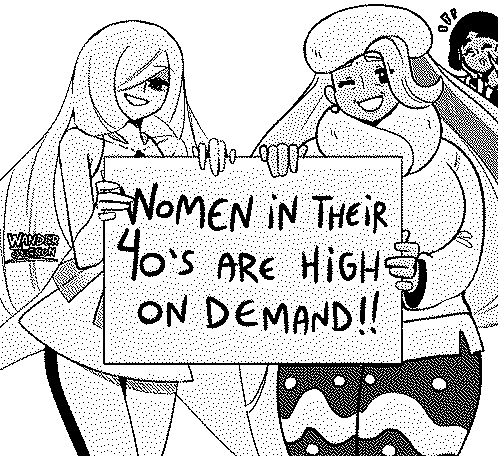 Art by @wanderjegson
Art by @wanderjegsonJake met Melissa in the quiet glow of a museum exhibit, the air thick with the solemn beauty of 18th-century Gothic art. Melissa, a 44-year-old office worker who could navigate Excel sheets like a concert pianist handles keys, was staring at an engraving of Mary Shelley’s imagined tomb. Jake's been living on his own for almost two years, working full-time to pay rent, bills, and saving when he can. He’s got a plan: in a few years, he’ll to school and get his English degree. He can already picture the kind of literary deep dives he’ll finally have time for—Shelley, Lovecraft, even Thoreau if he’s feeling indulgent. But for now, he’s grinding. Balancing the line between survival and aspiration. He spoke with an ambition that Melissa found refreshing, even as he laughed about how he survived on instant noodles more often than he’d like. For Jake, Melissa’s insights into navigating life, coupled with her irreverent humor, made her magnetic.
They started talking at the exhibit, an impromptu debate about what really happened before Poe died (Melissa hadn't seen the critical video essay on the topic) turned into coffee and then hours of conversation. A shared love of the gothic turned into something deeper. Jake and Melissa became lovers. Their relationship wasn’t scandalous, or sordid, or any of the things people might assume. It was...normal. Easy. They liked each other’s company. They laughed at each other’s dumb jokes. They cared about each other’s lives.
If you strip their story down to its bones, it’s simple. Two adults with full lives, consenting and deciding to be together. But, of course, the story doesn’t exist in a vacuum. It’s wrapped in layers of societal expectations, outrage, and moral policing. Jake and Melissa aren’t just Jake and Melissa; they’re a scenario, a lightning rod for "the discourse".
Why? What makes Melissa and Jake so threatening to the moral framework of this discourse?
Let’s be honest: age-gap relationships make people squirm. The liberal millennial discourse surrounding them has entrenched itself in a rigid framework—as inherently predatory, age differences as insurmountable gulfs, younger adults as helpless victims unable to navigate relationships with autonomy. But what if the reality is far more complex? What if Melissa isn’t a predatory cougar and Jake isn’t a naïve child? What if they’re just two consenting adults who met at a museum because they both love Gothic art and literature?
Millennials, especially those steeped in neoliberal ideals, have a habit of infantilizing Gen Z. Their rhetoric often positions itself as progressive, yet it drips with puritanical condescension. “Jake’s too young to understand,” they say, infantilizing a grown man who’s been fending for himself. The judgment isn’t about protecting Jake; it’s about control, about asserting dominance over a younger generation that’s challenging their narratives. They call us reckless, naïve, incapable of understanding the consequences of our choices. But maybe the truth is simpler: they’re envious. Envious that we are experimenting, autonomously, with our bodies and our relationships. Envious that we are reshaping cultural narratives and questioning their rules.
These narratives don’t exist in a vacuum. They come from a society deeply invested in maintaining certain power structures. Who benefits when we divide adults based on arbitrary qualifiers like age, or when we infantilize younger adults? Who profits when working-class people—who already face enough alienation—are told that their relationships are suspect, that their choices are invalid? The capitalist class thrives on this kind of division. Keeping people isolated, suspicious of one another, and second-guessing their autonomy only reinforces the social hierarchies that keep systems of power intact.
And here’s the twist: the gendered double standard in these situations is glaring. A younger man like Jake is framed as pathetic, emasculated, or the victim of some Freudian complex. A younger woman in his position, however, is treated as inherently powerless, unable to navigate power dynamics. Both narratives are dehumanizing. They deny autonomy to the younger partner while reducing the older partner to predatory stereotypes. When Jake is shamed for his sexuality, it’s a denial of his agency. When Melissa is dismissed as a "hag" or reduced to an archetype of desperation, it’s a regressive policing of women’s sexualities. The same liberal progressives who claim to stand for empowerment, agency, and open-mindedness often wear their discomfort with male sexuality like a badge, as though shaming young men is somehow an act of moral superiority. They’ll cheer “sex positivity” for everyone else, but when it comes to young men? The rhetoric becomes about discipline, distrust, and denial. Ironically this perpetuates toxic stereotypes about masculinity—namely, that men’s desires are inherently dangerous or that they are incapable of engaging with their own sexuality in a thoughtful, ethical way.
Toxic masculinity thrives in the silence shame creates. Repression breeds confusion, and confusion creates an opening for those who prey on it. By failing to address young men’s sexuality with nuance and care, liberal progressives unwittingly hand ammunition to the very forces they claim to oppose.
Think about the terms themselves: “hag,” “cougar,” “boy toy”, "cradle robber", "mommy issues". When a younger man and an older woman are involved, the narrative swerves into comedy, as if the pairing is so inherently ludicrous that it cannot be taken seriously. Zoomers, of course, have leaned into this absurdity with the term “hagmaxxing,” an ironic, tongue-in-cheek reclaiming of a label meant to strip older women of their desirability and humanity. “Hagmaxxing” isn’t just about younger men chasing older women for kicks. It’s a middle finger to the idea that older women should somehow “expire,” that their worth vanishes as they age out of their twenties. It’s a rejection of the notion that a woman like Melissa is either a desperate predator or a sexless shadow. By co-opting the word, we're subverting the narrative, holding up a mirror to society’s regressive policing of women’s sexuality.
But let’s step back for a moment and think about how this plays out differently depending on the genders involved. If Jake were Jasmine and Melissa were Mike, what would change? The older man-younger woman trope has been beaten into our cultural consciousness to the point of exhaustion—the judgments are sharper, crueler. Where Jake might face shaming for his sexuality—questions of emasculation, jokes about “having mommy issues”—Jasmine’s autonomy would be erased altogether. “She doesn’t know what she’s doing,” the moralizers would cry. “She’s being taken advantage of!” And there it is: the implicit denial of her agency, her ability to consent, her power over her own body. Society tells her she’s both too young to navigate desire and too foolish to see manipulation coming. This infantilizes young adults and perpetuate the idea that women, both younger and older women, can’t be fully autonomous sexual beings. This isn’t to say power imbalances don’t exist—they absolutely do—but to assume they dominate every relationship is to reveal a shallow understanding of human connection.
No one really talks about the flipside of age-gap relationships. We’re so busy painting them with the broad brush of suspicion that we ignore the intricate dynamics that often make them thrive. Consider the teacher-student, master-apprentice energy that can naturally emerge—not in a paternalistic way, but in a collaborative one. Relationships like Jake and Melissa’s aren’t about one partner wielding their life experience like a cudgel; they’re about using that experience to steer the ship together, to avoid the rocks one of them has already crashed into.
It’s not hard to imagine Melissa helping Jake sidestep some of the pitfalls she stumbled into as a young adult. Maybe she talks him through how to negotiate a raise, or shares hard-won wisdom about which coworkers to trust and which to avoid. Maybe she listens to his dreams of pursuing an English degree and offers insights into balancing school and work, insights born of her own struggles in a job market that doesn’t reward passion. This isn’t about her playing “mommy” or infantilizing him—it’s about recognizing that relationships, especially those with an age gap, can leverage differences in experience to benefit both partners.
We don’t even need to stretch our imaginations too far to see this dynamic play out in reverse. Take the example of a 19-year-old OnlyFans creator, fiercely independent and carving out her own space in the world, but also navigating the minefield of sudden income and societal judgment. Enter her 27-year-old boyfriend—not her “caretaker,” not her boss, but someone who’s been around the block a few more times. He knows the seductive pull of shiny things, like the Camaro she’s considering buying with her first big payout. He’s the one who gently points out that a massive car loan might not be the best move, sharing his own story of spiraling into debt in his early twenties because he couldn’t resist a brand-new ride.
For a generation that came of age under neoliberalism, with its moralistic overtones and obsession with optics, it’s no surprise that millennials have developed a particular knack for paternalism. Gen Z, meanwhile, has responded to this with a defiant shrug. We aren’t asking for their approval, but their inability to grant it burns through the subtext of their critiques. Why are millennials, especially the self-proclaimed progressive ones, so obsessed with this? Is it envy? Are they grappling with the fact that Gen Z now holds the cultural reins? Or is it something deeper—a fear of what happens when young adults refuse to let the older generation set the moral parameters of their lives? There’s a persistent belief among older generations that young adults today are somehow less equipped to handle life than their predecessors. It's laughable. Our generation is navigating economic precarity, a never-ending stream of crises, and a digital world that demands constant adaptability. We aren’t interested in their outdated frameworks of morality, rooted in fear and shame. Consent is our generation’s moral bedrock—clear, mutual, and inviolable.
Jake didn’t consent to the conditions that forced him to work full-time instead of going to school right away. Melissa didn’t consent to a society that tells her she’s undesirable after forty. But they did consent to each other. They’re two adults navigating the complexities of connection in a world determined to complicate it further. To claim otherwise is to deny Jake’s agency, to infantilize him in ways that run counter to the very foundation of consent. When we start declaring which adults are “allowed” to consent to relationships with one another, we aren’t protecting anyone. We’re enforcing arbitrary stratifications that serve to divide and conquer. The result? A more isolated, distrustful society where the working class is too busy turning on itself to demand better.
So let’s stop pretending we know better than the people actually living these dynamics. Let’s stop shaming young men for their desires and older women for embracing theirs. Let’s stop denying agency to adults just because their choices make us uncomfortable. Because when we do that, we’re not protecting anyone. We’re just reinforcing the same tired hierarchies that keep us all alienated and divided.
The next time you see a Jake and a Melissa, or a Jasmine and Mike, ask yourself: Who are people "helping" when they clutch pearls over their relationship? Is it Jake? Is it Melissa? Or is it the systems that thrive on our division, our alienation, our moral panic? Because in a bar somewhere, a 21-year-old and a 38-year-old are laughing over drinks, connecting across the supposed chasm of their ages. And maybe the real question isn’t, “Should they be together?” but “Who profits from keeping them apart?”

Blood Club Mixes Return - 12/14/24
It’s right to burn with anger for the future that's been stolen from us—let that fury forge an unyielding will—a will for change, a will for revolution, a will that cannot be extinguished.
GRAPHIC AND EXPLICIT CONTENT AHEAD
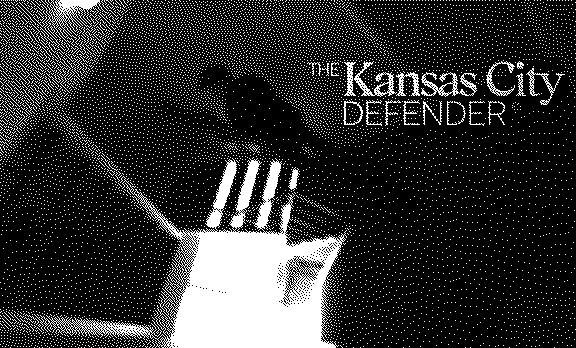 Video footage shows officers wielding AR-15s during incident.
Video footage shows officers wielding AR-15s during incident.
Another state-sanctioned execution. Last night, Independence, Missouri police killed Maria Pike and shot her 2-month-old daughter, Destiny Hope, in the head during a raid over a family dispute that happened earlier in the month. Destiny is dead. Maria is dead. Her husband survived and says the police’s fabricated story is a blatant cover-up. Predictable lies from a system designed to execute, not de-escalate.
This isn't just negligence—it’s state-sanctioned execution.
Now, pair this with a clip from David Grossman, the U.S.’s top police trainer, teaching officers that killing someone on the job will give you "the best sex of your life".
Juxtapose the dehumanization taught in police training with the fact that U.S. cops killed nearly 1,000 Americans in 2024 alone.Compare that to the total U.S. combat deaths from the entire War on Terror (2003-2021): 4,431. This is what war on civilians looks like.
But there’s more.
Missouri’s police, like many others, train with the Israeli Defense Forces (IDF). The same tactics and weapons used to brutalize Palestinians in Gaza are deployed here against Americans:
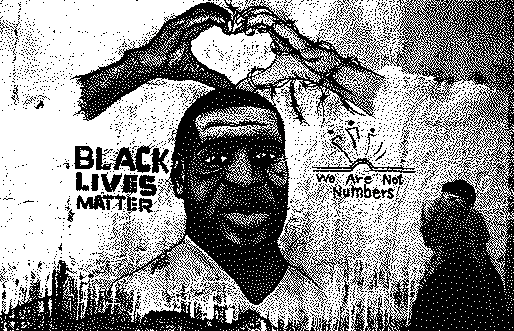 George Floyd Mural in Gaza, Palestine
George Floyd Mural in Gaza, Palestine
This isn’t a coincidence. This is a system. Did you know that over half of all police killings go unreported? Cops are an occupying force in our communities, and their orders are clear: Protect the rich. Kill the poor.
The way police killings get framed as strictly a Black issue—while Black people are absolutely disproportionately targeted—is a deliberate strategy. It fragments the fight. It turns a systemic, class-based war into a narrow narrative. And here’s the thing: there’s no “proportion” of police killings that makes it acceptable. What’s the right “proportion” for state-sanctioned murder? Zero. Always zero.
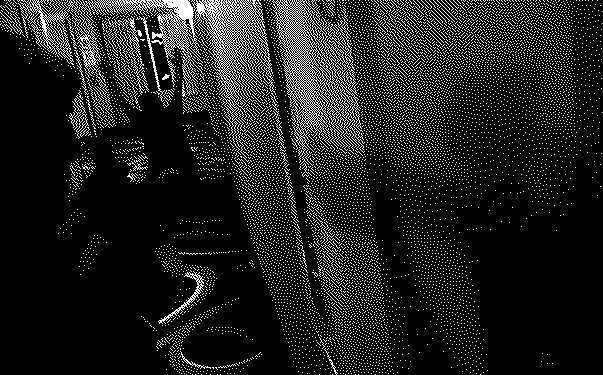 The execution of Daniel Shaver in 2016
The execution of Daniel Shaver in 2016
But the real disparity? 100% of the people murdered by police are working-class. Every single one. While rich people commit genocide on an unimaginable scale, dodge accountability with ease, and laugh from their gated mansions, the rest of us are left bleeding in the streets, gunned down for holding a phone, running, or just existing in the wrong ZIP code.
The state just executed a newborn and her mother. That’s not “bad policing.” That’s the machine working exactly as designed. And you and I know how they want this script to play out:
A slap on the wrist, a short media cycle, and a transfer to another department. Rinse and repeat. They’re banking on our rage fizzling out. They want us to take this lying down. They expect us to grieve quietly, to beg politely for reforms. They don’t expect us to fight back.
Read the Kansas City Defender’s full breakdown for the horrifying details, then ask yourself:
How many more of us will they kill before we fight back?
smoke-drenched, roachy, guttural, the oil slick and grease soaked sludge of the sacrificed south in its most primordial form
250,000 Unique Site Views: A Thanks

I want to talk about some things. I want to talk about some things that matter. What does it mean to be from blue-collar America? To be from a sacrifice zone in blue-collar Louisiana? What does it mean to watch your father—the strongest man you’ve ever known, the hardest-working man you’ve ever seen—head off to the oil rigs? Because that’s where the money is. It’s booming right now. Might not be booming this time next year, but it’s booming right now.
And you watch him go. You watch the strongest man you’ve ever seen, with a heart of steel and a body carved from stone, come back broken. Two canes. Two knee braces. Struggling to walk. And you ask, why? Why does the man who gave everything come back like this? Because capital broke him. They used him up and spit him out, like they’ve done to so many in this world.
But he rebuilt himself. God, did he rebuild himself. Through grit, through sheer determination, through physical therapy, exercise, sweat, and pain. The doctor said, “You’ll never move like you used to, you'll never work again.” And he said, “Fuck you. I’ll move better than I ever have. I’ll figure it out. I’ll work harder than I did before. I’ll find a way, because that’s what’s got to be done.”
Vast stretches of trailer parks dot the landscape, with blue tarps serving as a familiar and unmistakable sight. Where the Dollar General sits across from the town strip club. That’s where I’m from. The sacrifice zone. I’m from that kind of place. I’m from that kind of people. I’m from Louisiana, and when I sit here and look at the numbers—250,000 views, 250,000 unique people who’ve heard my voice—I think about that strength. The strength of the people who came before me. The strength of my grandfather, who spent 20 years in Angola prison. The Reagan years, crack-cocaine, he paid his dues in chains. A hell of a life. A hell of a story. That’s strength. That’s survival.
I am the contradictions of this empire. I am the voice of its belly and a voice of its people. I don’t have a college degree. I moved around a lot growing up. I’ve read every book I could get my hands on. I work a regular job. I do what I can with what I’ve got. And I’ll keep doing that, every damn day, because it’s what I’m here to do.
And when I see that number—250,000—I don’t think about myself. I think about the people who came before me. To Elizabeth, the strongest woman I’ve ever known and my Mother, who's survived more than I could ever know. I think of the women in my life who shaped me, gave me the lens to see the world for what it is, and taught me how to build a code of honor to live by. They gave me the confidence to be here and speak truth to power, to believe in something bigger than myself.
That’s what I want to say. I hope what we build here will last a million years. Thank you.
-Erik Houdini
Valentinov: The Steezy Duelist That Shook PWCQ 69

This was no ordinary qualifier—it was the first Premium World Championship Qualifier since the climactic 2024 Worlds, and the stage was set for a new era of dueling. Yet no one expected it to begin like this: with a Horus Control deck so spicy, so fresh, it left duelists reeling and spectators demanding more. Angel Valentinov, a name you’ve probably never heard before this weekend, is now the one setting the pace, the tone, and the trajectory of goat format for 2025. And you better believe everyone who dueled that day is taking notes, because what went down at PWCQ 69 wasn’t just a victory—it was a paradigm shift.
Let’s talk steez, because that’s what this is all about. It’s not trying to blend in. It’s not apologizing for being different. It’s a middle finger to anyone who thought goat format had rules you couldn’t break. Steez says, “Screw your rules. Screw your meta. I’m here to win, and I’m gonna look damn good doing it.” The duelists who get remembered aren’t the ones who just win—they’re the ones who leave a mark, a style, a finesse that makes the crowd erupt and leaves their opponents shaking their heads in grudging respect. You can’t teach steez. You can’t fake it. You either have it, or you don’t. And if you don’t? Goat format will eat you alive. It’s that simple.
Three Cyber-Stein, three Last Will, three Cold Wave; that’s a deck that’s built like a machine, piloted by someone who knows how to read the field like a poker shark smelling blood in the water. It was understanding when to hit the Cold Wave, when to hold the Mind Control, when to unleash that Berserk Gorilla from the sideboard like a pissed-off ghost of the format's past. And that Main Deck Jinzo? Well, you sleep on Jinzo, you wake up swept under the rug.
This is the first salvo in what’s shaping up to be a season of absolute madness. Goat Format isn’t just alive; it’s evolving. Players are pushing boundaries, breaking rules, and embracing the chaos. And Angel Valentinov? They’re leading the charge. Duelists everywhere are already scrambling to keep up. Expect to see imitators, sure, but the thing is, you can’t replicate steez. You can netdeck Valentinov's Horus Control list, but you can never netdeck the swagger.
So here’s the deal. If you’re still sitting there with your standard build, thinking you can rest on your laurels and just practice the Warriors match-up, you’ve already lost. The spectators, the people—they’re hungry for something new, something raw. They want to see duelists who can bring it all: the strategy, the execution, and the steez.
Angel Valentinov just gave them all three. And he’s only getting started.
Check out the event recap from goatformat.com
Contradictions are like cracks in the concrete where the roses of revolution can take root.
Barbarism in the Classroom: What 13 Year Old Ty’s Arrest Says About Our Values
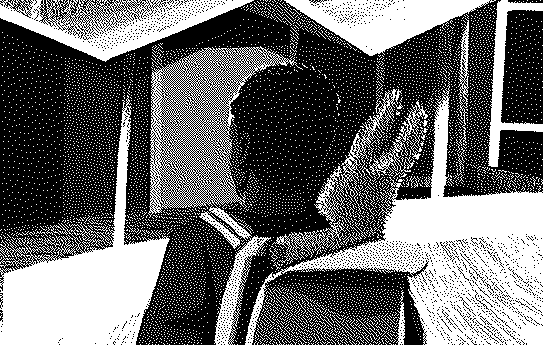
What are schools supposed to be? Are they not the places where children learn what it means to be part of our society, to be part of this broader American project? Schools are meant to be places of safety, where children can grow, explore, and understand the values that shape our communities. But what happens when those values—our shared culture—are no longer about growth, safety, or learning, but about fear, control, and punishment?
Take Ty, a 13-year-old Black autistic child in Tennessee, arrested for making a nervous comment about his stuffed bunny. A comment—let’s be clear—that was harmless and rooted in anxiety, not danger. Yet, Ty was handcuffed, charged with a felony, and dragged into a police car. This is what the school-to-prison pipeline looks like. It’s a reflection of a system where the only tools are policing and punishment.
One of the comments on the article about Ty’s case struck me deeply: “I’m just glad they didn’t kill him.” Think about that for a moment. That is where we are as a society—relieved that a child, a literal child, wasn’t murdered by the police. And let’s not pretend it’s an unreasonable fear. We’ve seen this before. We saw it with Elijah McClain, a 23-year-old Black man with autism, who was killed by police in 2019 for the crime of walking home while nervous and confused. Elijah was around my age. He could have been me. But I’m still breathing, and because I am, I have to speak out for people like him—for people like Ty.
We know how these situations play out in the worst-case scenario. We’ve seen it time and again. The chilling thing is, those in power don’t seem to understand—or care—that the fear and violence that permeate our policing system trickle down to children. Imagine being Ty, a Black autistic child, standing there as police handcuff you, take your comfort item, and treat you like a criminal. Imagine knowing, consciously or not, that these people have the power to kill you and face no real consequences. Do you think you’d be able to calmly explain yourself? Do you think you’d feel safe?
What values does this reflect? What does it say about our culture, about what we’ve allowed to propagate over generations? When a child learns that the adults around them see them as a threat, that their mistakes will not be met with guidance or understanding but with state-sanctioned force, what kind of person are we shaping them to be? What does it say about a nation when its schools—the supposed bedrock of its future—mirror its deepest injustices?
We cannot deny the role of race in this. Black children, particularly Black boys, are disproportionately adultified, treated as older, more dangerous, and less innocent than their peers. This is a system that refuses to see them as children and instead projects onto them the fears and prejudices of a deeply broken society. But this is not just a racial issue. It’s also about ableism, about the systemic failures to understand and support neurodivergent people. And it’s about a culture of violence and policing that ultimately threatens everyone.
What happens when we invite the state’s hitmen into our schools? What values do they teach? Are these the values of a modern society, or are they something far older, far more brutal? Robert E. Howard, in Conan the Barbarian, described “civilization masked as barbarism”—a veneer of order and refinement that conceals the brutality underpinning it. Is that not what we see here? A system dressed up in authority and procedure, but ultimately defined by fear and violence?
Rosa Luxemburg framed the choice clearly: “It is socialism or barbarism.” Right now, we are steeped in barbarism. It’s in every handcuffed child, every needless death, every institution that prioritizes control over care. Barbarism is not some far-off, ancient concept; it lives in the everyday operations of our schools, our justice system, our culture of policing. And it will continue to thrive unless we choose something different—something rooted in humanity, empathy, and justice.
If we want to move forward, if we want to build a better society, we need to rethink everything about how we raise, teach, and protect our children. Schools should be sanctuaries, not pipelines to prison. We need counselors, not cops. We need to teach empathy, not fear. And above all, we need to instill values that reflect who we want to be—not who we’ve allowed ourselves to become.
Because right now, our children are learning. They’re learning that the world doesn’t care about them. They’re learning that fear is stronger than compassion. And they’re learning that violence is the answer to every problem. Is that who we the people want to be? Is that the society we want to build? If not, then it’s time for something new. It’s time for us to teach a better set of values.
New in the Arcade: Traumatarium

Dark, gritty, and dripping with style—this one goes all in on its art direction, and it absolutely pays off. A Cave Noire take on the first-person dungeon crawler: stripped-down mechanics, boiled down to the bare essentials. You’ll come for the visuals, no doubt, but the gameplay has a way of keeping you hooked.
Veteran's Day Address
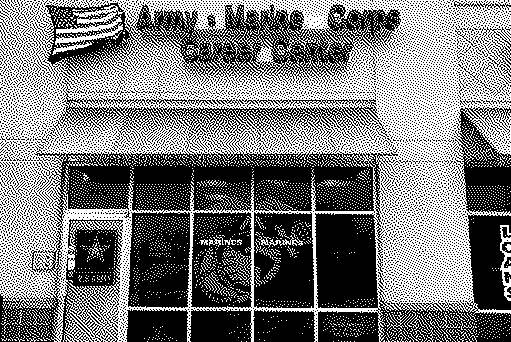
Today, on Veterans Day, we honor those who served, but let's take a moment to really think about what that service means—what it's built on, and why so many young people feel like the military is their only path forward.
Growing up, we all saw it. I remember back in sixth grade, we'd be talking on the school bus about military snipers, about that soldier who supposedly took a guy out from two miles away. We were kids, thinking, 'That's badass, that's what a hero looks like.' But what does that really mean? Is that what it means to be a hero—to take someone's life, to drop bombs on communities we've never met? Think about it. The new Call of Duty game just came out. It's the best-selling game series of all time, and that's no accident. It's backed by the Department of Defense, openly funded as a recruitment tool. I grew up playing it, like so many others—chatting with friends about favorite guns and wars. But there's a reason these games are everywhere, and it isn't just entertainment. It's all part of a system meant to make military life feel normal, even appealing.
Then there are the jets flying over football games, with cheers from the crowd as we feel that rush of pride. But those same jets are flying missions overseas, dropping bombs on Gaza right now. They aren't just part of a spectacle for us—they're part of a war machine that devastates real people, families, communities, every day. And it's our government funding that destruction. We're not just watching from the sidelines; we're implicated, whether we realize it or not.
The message is everywhere: enlist, serve, be proud. But here's the reality—our young people aren't just choosing the military out of patriotism. Many are pushed into it because they don't see other options. For some, it's a way to escape poverty, to build a future when other doors feel closed. It's no coincidence that enlisted recruitment is highest in communities with the least opportunity.
Imagine a small town with maybe 6,000 people. The big news is when a new Dollar General goes up, right down the street from the Family Dollar that went up last year. That's 'economic development' where you're from. There's no factory, no hospital, no major employers, but there's always a recruiting office—Army, Navy, Air Force, Marines, maybe even Border Patrol. That's where the opportunities are for far too many.
And it's no accident. The military is this country's biggest jobs program, especially in towns like these, where the options are thin and the future feels even thinner. You're not signing up just out of patriotism; you're signing up because no one showed you another way out. And from an early age, this idea of 'service' is drilled into you, not as one option among many, but as a path you're expected to take. When the only job opportunities are in uniform, when every career fair is filled with recruiters, when the most stable paycheck is tied to war, what message does that send?
But here's the thing: those jets flying over games, those flags waving—they don't represent me, and they don't represent the values I want for my country. We can honor the people who served without glorifying the system that put them there, a system that chews up working-class young people from forgotten places. We're not just watching from the sidelines; we're part of a culture that makes this feel normal, that makes war seem inevitable, even honorable. But it doesn't have to be that way.
A lot of veterans come home and turn to nature for peace. They find themselves drawn to our national parks, looking for something real, something life-giving after years of being part of something destructive. They reflect on the lives affected, maybe the lives taken, and there's healing in those quiet places, in the trees, the rivers, the land. These parks remind us that we can build something beautiful, something lasting.
So, as we honor our veterans today, let's ask ourselves why we have so many. Why is service often the only way forward in towns that this country has left behind? And what can we do to make sure the next generation has other doors open—doors to opportunity, doors to a future that doesn't involve a uniform and a gun?
If we're truly 'we the people,' then it's on us to reject the idea that this war machine reflects our values. Let's build a country where service means building communities, not tearing them apart. Where being a hero isn't about the longest sniper shot but about creating a future where kids in small towns don't feel like the military is their only chance to get somewhere. That's a country I want to believe in, one that respects its veterans and also questions the need for their service. And deep down, I think a lot of us want the same thing.
-Erik Houdini
The Houdini Line: Our Post-Election Statement and Goals
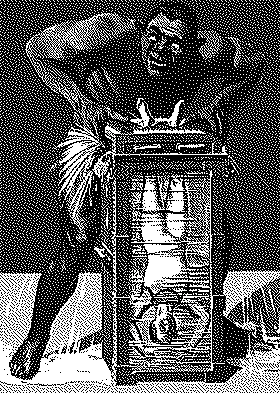
We can escape this.
My friends, brothers, sisters, comrades, today we face a moment that will test us all. It's the kind of moment that comes once in a generation. As you know, Donald Trump has won the presidency again, and there's no sugarcoating it—things are about to get harder for working people, for women, for our LGBTQ comrades, and for every community that's been pushed to the margins of this country.
And what have we seen from the so-called opposition? The Democratic Party—the party that was supposed to be for the people—has shifted so far right that they're promising walls and advancing genocide. They've got no vision, no courage, and no heart for the people. They don't want to fight for you; they want to fight over who gets to hold the reins of power. But let me tell you, folks: the people who hold that power don't care about you or me. They don't care about us any more than they care about the grass they step on or the wind that blows.
Now, I know that many of you—especially those who are young and facing this for the first time—might feel like the ground has been ripped out from under you. You're worried, maybe even scared about what the future holds. Some of you may even be wondering if you'll be safe here, wondering if you need to leave this country just to find security and a fair shot at life. But let me tell you this: you are not alone. You are not alone. There is an entire generation of people who have been where you are, who have felt that same fear, and they're still here. And I'm telling you, the sun will rise tomorrow.
Let me tell you, my friends, DIY networks exist. Real, true communities exist—communities that don't rely on politicians and their empty promises. You don't have to depend on the person on your TV screen. You can depend on each other. And I'm asking you right now: reach out. Look to your left, look to your right. Connect with your neighbors, your friends, your comrades, because now is the time to build, and build strong.
In the words of the great revolutionary Thomas Sankara: “There is no true social revolution without the liberation of women. May my eyes never see and my feet never take me to a society where half the people are held in silence. I hear the roar of women's silence. I sense the rumble of their storm and feel the fury of their revolt.”
And we're going to take that message and put it at the heart of our movement. Because, folks, there is no liberation if women aren't free. There is no justice if women's rights, including the right to choose, aren't protected. This is not a side issue—this is the issue. Women's rights are human rights. And we're going to make that clear in every corner of this nation.
We're still in the first half of this new American century, and what we build now will set the course. Let's remind ourselves of those words held by Lady Liberty herself:
"Give me your tired, your poor, your huddled masses yearning to breathe free."
That's the America we could be. And in that struggle for a better, freer future, women have always been the ones pushing forward. They're not just part of this movement—they've been leading it, keeping it strong, giving it life. Women are the backbone of every fight for real change. And we're here to say that if we want freedom, if we want equality, we have to start with them.
Because, let's be real: what kind of country are we building if we don't guarantee the basic rights of women? What future are we heading toward if half our population has to fight to be seen, to be heard, to be free? Fighting for women's rights isn't just the right thing to do—it's how we build a country where everyone can live with dignity.
So let me put it plain: if we're going to face these next two years with courage and strength, we need each other. We need connections that go deeper than the political rallies, that go beyond isolated protests on college campuses. We need a robust national network, built by us, for us. Not from the top down, but from the ground up, with every voice, every hand, every heart pulling together. I'm talking about a coalition that spans this whole country—local organizations, radical youth, labor unions, mutual aid groups—all of us together.
I believe it's time to think big. It's time to organize at a scale we haven't seen in decades, a century even. So here's what I'm proposing: December 20th, 2025, New Orleans. I want a national convention, a place where every corner of this movement can come together. I want to see communists, anarchists, democratic socialists, labor union leaders, Indigenous leaders, prison abolitionists, climate activists, creators, content makers, and organizers from all walks of life come together to build a plan, a strategy, a path forward.
This convention isn't just some meeting on a calendar. It's a starting line—a launch toward a future we choose, a future we build together. Because we're already 25 years into this century, and we've seen where the current leadership has taken us. The crises of our time—climate change, economic injustice, systemic racism, the oppression of women, the attack on LGBTQ+ rights—are too critical, too urgent to be left to the whims of the powerful. This convention is where we draw the line and start shaping a new way forward.
Folks, this convention is where we're getting down to the brass tacks. We're not just looking to fill up seats; we're looking to make real changes, to organize and strategize for a future we actually want to live in. If you want to help make this convention a reality, here's what you can start doing right now:
1. Join a Group—Just Pick One and Start Showing Up
Look, it doesn’t matter if it’s Freedom Road Socialist Organization, PSL, the Green Party, the Socialist Alternative, Food Not Bombs, or a mutual aid group in your area. Just pick a group and start showing up. Get into their meetings, meet people, understand their goals, and make connections. Our aim is to have people embedded in all these organizations, and we need them all talking to each other. If there’s a meeting or event coming up, go. Bring up this convention. Even if they aren’t officially involved, open up the conversation.2. Educate Yourself—and Pass That Knowledge Along
Not everyone has the time to sit down with a stack of books, and that's fine. But if you do have that privilege, use it. Educate yourself, but don't stop there. Bring that knowledge to others. Be a resource for your friends, family, and neighbors. Don't talk down to them; we're not here to preach from some high horse. We're here to learn and build together. Remember, we are the masses. Share what you know in a way that's practical, that connects with people where they're at. If we want to see change, we have to make education and dialogue something real, something people can understand and see in their own lives.3. Start the Conversations Where You Are
This is where it starts—right where you live, work, and spend your time. Talk to your friends and family, your coworkers, the people you already know. Bring up what's happening around us, what we're working toward. If you're a community leader, even if it's not a political setting, make space for these discussions. If we're going to change anything, it has to start by opening up these conversations in our everyday lives. Get people talking, thinking, and, more than anything, ready to take action.
Now, why New Orleans? Why December 20th, 2025? New Orleans has faced it all—storms, floods, and years of being neglected by those in power. It's a city that embodies resilience. But with climate change pressing down harder every year, there's a real risk that it won't be here in another 100 years. That's why we're gathering there: to make a promise, to take a stand, and to ensure that we don't let this moment slip away.
I'm not alone in this vision. None of us are. This is something so many of us feel in our gut—that together, we can do something different, something real. And I want to make something clear before we close: the attacks on women's rights in this country are attacks on all of us. We cannot build a free, just future if women are held back, silenced, denied their basic rights. Women hold up half the sky, and we will not stand by while they are pushed down. We need every voice, every hand, every heart in this fight.
So let's take this energy forward. Let's walk out of here knowing that we're not alone, that this movement is growing every day.
This is our moment in history. I know we will rise to meet the occasion.
Thank you.
-Erik Houdini

Ask yourself this, what is democracy worth? When you are starving to death, when your baby is starving to death, because you haven't eaten in three days, four days, five days, you lost count, and you can't make milk anymore. The water's poison, so what little that you can give your child is just killing them. What does democracy mean in a situation like that? Who's going to drop the next bomb on you? What does democracy mean when you're pulling your only son out of the rubble? And you can hear his screams, his voice growing fainter and fainter as the rubble is crushing his soul, his fucking ribs, his legs, his heart, his organs. Why is the rubble crushing this boy that you have raised for the last 10 years of your life? Because an American-made bomb was sent there. What is democracy worth when the bomb drops and your hands are rubbed raw from ripping apart the rubble and just trying to do everything you can, with every strength a human being can muster to rescue your only son, your only child? When the bomb hits, it takes you out too. And the very last things you hear, the very last things you hear as you bleed out on the rubble that was once your home: the muffled screams of your son under the rubble.
What is democracy worth?
-Erik Houdini on "Who do you endorse this election?"
🔴The Popular Front calls for a boycott of the Democratic and Republican parties and stresses the necessity of not voting for advocates of genocide and supporters of colonialism.
• The Popular Front for the Liberation of Palestine calls on the free people of America, especially the supporters of the Palestinian people, the Palestinian and Arab communities, and the organizations of blacks and minorities, to boycott the Democratic and Republican parties in the American elections scheduled for tomorrow, which share clear colonial goals aimed at exterminating our people and strengthening the Zionist settlement project.
• These two parties were directly involved in the ongoing war of extermination against our Palestinian and Lebanese peoples, and they never concealed their blatant bias in favor of the occupation, and their continued support for its racist policies that target the existence of our Palestinian people and uproot them from their land.
• The positions of the two American parties reflect an explicit adoption of ethnic cleansing, and legitimize the Zionist crimes and massacres against our people, through financial, political and military support for the Zionist entity; the statements of the symbols of these parties also seek to beautify and justify their imperialist policies that adopt a colonial language, which sees the Palestinian people as an obstacle to their alleged “civilizational project”, and their election campaigns ignore the horrific crimes committed daily against Palestinian civilians, especially women and children, in an attempt to cover up the true face of the occupation and legitimize its crimes.
• The Democratic and Republican parties also continue their attempts to attract the support of Zionist lobbies and influential people, in efforts that aim to strengthen the policies of mass displacement and organized repression against the Palestinians.
• In this context, the Popular Front renews its explicit call to all honorable people in American society not to vote for these two parties that use American tax money, which is sucked from the blood of the American people, to support the Zionist genocidal regime.
• The Popular Front sees boycotting these two Zionist parties in tomorrow’s American elections as a moral stance no less important than any other form of solidarity with the Palestinian people and the rights of oppressed peoples. It is also an effective means of struggle to expose the falsehood of American slogans that speak of freedom and human rights. The United States, through its political tools, is trying to exploit these concepts to justify its crimes and consolidate its hegemony over peoples, without caring about the rights of the Palestinians who are subjected to the most heinous types of crimes.
• Finally, the Front considers that the boycott of the two parties is a clear internal message to the American administration and the international system around it that those who collude in shedding the blood of our people and displacing them should not receive the votes of the free people of the world and our communities, who refuse to be contributors to their election or false witnesses to their criminal policy in power.
Popular Front for the Liberation of Palestine Central Media Department 4-November-2024

